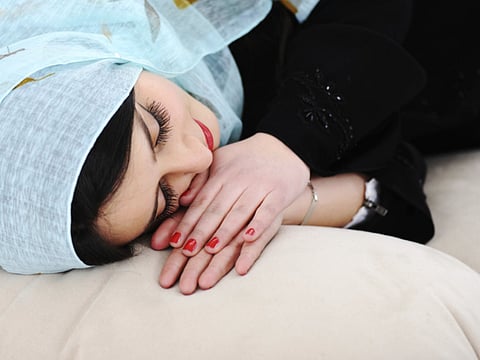How not to lose your sleep during Ramadan
The key lies in effectively managing the changed cycles, say doctors

Dubai: Ramadan is here and doctors say there is no reason why you should be losing sleep during the fasting month.
With a little care and discipline, those fasting can effectively manage the typically altered sleep pattern to minimise its adverse impact.
During the month, those fasting have to deal with a marked change in eating patterns. The daily balance of three meals spread through the day is replaced by two nocturnal meals.
But as Dr Nizamuddin Gulsha, specialist family medicine at Mediclinic Mirdif, explains, heavier eating and activity levels at night drastically alter the metabolism of those fasting, resulting in a higher body temperature and reduced sleep.
New sleep cycle
“Sleep is nothing but a reversible state of reduced responsiveness, motor activity and metabolism. On a regular night, we typically go through four to five cycles of sleep, each lasting 90-120 minutes. But during Ramadan, this cycle gets affected,” he said.
Moreover, daylight fasting during the summer months which could last for up to 15 hours in the UAE, results in several issues. Among them is a reduced level of mental activity or daytime alertness, because of which working hours are cut short by schools and offices.
Studies have shown that daytime sleepiness, which is common during Ramadan, peaks between 2 and 4pm. If someone who is fasting does not rest enough, it can have a serious health and social impact, leading to heightened anger, irritability, arguments and even road accidents.
Dr M.P. Jaishankar of Aster Hospital in Mankhool said there are some common mistakes which must be avoided during Ramadan.
“People tend to eat rich and fatty foods and drink a lot of fluids during the night. This must be avoided as over 26 per cent of the population here suffers from a digestive problem called gastro-entro reflux which affects sleep. They tend to sleep immediately after their meals which is also bad.”
He said the number of hours that people sleep also tends to get reduced as they have to get up and pray for suhour.
But the key lies in managing the changed routine.
Dr Gulsha said those fasting should avoid sleeping in the morning hours after waking up for suhour by 4am. “It is acceptable to take a nap for a couple of hours in the afternoon, but not in the morning. At night, I recommend that those fasting go to bed by 11pm.”
He said with malls open until late and families and friends socialising well into the night, sleep cycles tends to suffer further.
Dr Imtiaz Khurshid, medical director, Linde Sleep & Respiratory Care Centre, said: “Insomnia is a frustrating and debilitating condition that begins with the sufferer having problems falling asleep and can aggravate until no sleep at all. Prolonged lack of sleep leads to moodiness, dizziness, irritability and a loss of concentration. Ultimately, a lot of physical discomfort ensues. Sufferers complain of feeling physically and mentally exhausted.”
He said inadequate sleep affects hormones, concentration levels, moods and even body weight.


